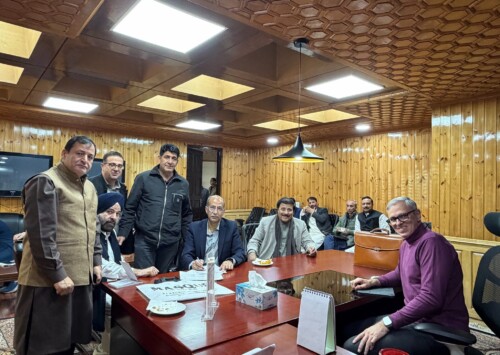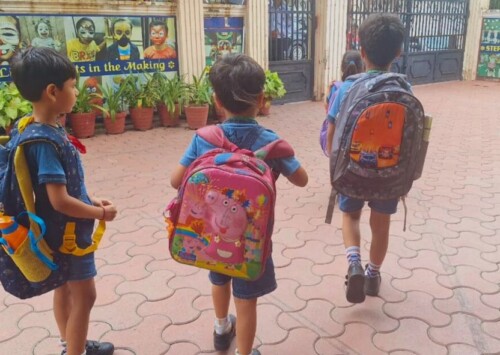India’s gifting industry gets personal: Where emotion meets innovation
Online influence and bigger budgets redefine gifting in India

Currently valued at USD 75.16 billion, Giftng market is projected to grow to USD 92.32 billion by 2030 (Photo: Canva)
In the wake of the Covid-19 pandemic, gifting has become a meaningful way to express love and appreciation. In response to this evolving need, gifting businesses in India have stepped up, offering premium and customised services.

Currently valued at USD 75.16 billion, Giftng market is projected to grow to USD 92.32 billion by 2030 (Photo: Canva)
Weddings, birthdays, anniversaries, and other special occasions have always been opportunities for people to express their love and appreciation. For centuries, gifts have been a meaningful way to show affection and thoughtfulness toward loved ones. Through the act of giving, people convey emotions that words often cannot fully capture. In the wake of the Covid-19 pandemic, these sentiments have only deepened. The time spent apart, the uncertainty, and the collective challenges have reminded us of the importance of personal connections. As a result, the tradition of gift-giving has taken on renewed significance, symbolising celebration, gratitude, resilience, and love.
But today, people no longer want to settle for simply giving a material item. Gift-giving has evolved into something far more personal and meaningful. Modern givers seek to offer something that captures the essence of the recipients, something that reflects their personality, values, and identities.
Gifting as a lifestyle statement
As a result, the gifting market in India is undergoing a vibrant transformation, blending tradition with modern sensibilities. Currently valued at USD 75.16 billion, it is projected to grow to USD 92.32 billion by 2030, rising at a steady compound annual growth rate (CAGR) of 3.55 pc, predicts TechSci, a Noida-based market research firm.
But this growth is not just about numbers, it is about how gifting itself is being reimagined. No longer limited to formality or obligation, gifting has become a powerful way to express love, gratitude, and emotional closeness. Whether it is a handwritten card, a bouquet of flowers, a box of artisanal chocolates, elegant jewellery, or a personalised keepsake, each gift carries a story, a sentiment, or a slice of someone’s heart.
Sweta Gupta, founder of The Good Road, a Delhi-based corporate gifting service established in 2019, observes that the increasing influence of social media is playing a significant role in driving the expansion of India’s gifting market.
“Social media has had a huge impact. People see aesthetic products online and want the same for themselves. In corporate gifting, companies have stepped up, they are no longer sending generic items. They want their brand to stand out, and employer branding has become crucial. Employees now share their onboarding experiences on platforms like LinkedIn. Whether it is Diwali or employee onboarding, companies now often send hampers. The rise of remote and hybrid work, combined with the influence of social media, is driving growth. Everyone wants something aesthetically pleasing and is eager to replicate trends they see online,” Gupta tells Media India Group.
Fuelling this emotional evolution is the rise of e-commerce, which has unlocked a world of choices at people’s fingertips. From handcrafted items to tech-driven customisations, online platforms make it easier than ever to find a gift that truly resonates with the recipient. Coupled with rising disposable incomes, consumers are increasingly willing to invest in premium and luxury gifts to express status, appreciation, or love. It is clear that gifting is no longer just a gesture, it is a language of its own, one that more people are eager to speak.
Abhinav Sahni, owner of three franchised outlets in Delhi of gifting company Ferns N Petals, says that the growth of the gifting market is also being driven by constant innovation and the use of sophisticated technology, fuelled by rising disposable incomes and people’s increasing desire for new and unique products.
“The biggest factor is customer demand. People want something new every day for their loved ones, they do not want to gift the same thing twice. So, there is constant innovation. Whether you are new to this industry or have been here for years, you have to keep up. To offer variety, you need new technology and new styles. This is what is driving the surge in demand and growth in the market,” Sahni tells Media India Group.
Also Read: The Green Shift: Veganism gains ground in India
Tech, personal touch and luxe appeal: The new face of gifting
To take advantage of the new technology available today, India-based online retailer IGP has integrated artificial intelligence (AI) and machine learning into its operations to offer a more personalised and seamless experience. By analysing customer preferences, browsing history, and occasion types, the platform recommends curated gift options tailored to individual needs.
As a result of its tech-driven approach and evolving customer experience, IGP saw its e-commerce net sales climb to around USD 80.4 million in 2024, according to data from e-commerce analytics firm EcommerceDB.
According to Gupta, customers increasingly gravitate toward gifts that offer both a luxurious feel and a personal touch, making customisation and premium appeal key drivers behind their choices.
“People want three things now. First, the gift should look premium and be beautifully packaged, something they can show off on social media. Second, it has to feel personal, so customisation is huge. And third, convenience, they want to choose and buy gifts easily, whether online or in-store. A lot of people ask for customisation on everything, even down to handwritten note cards. Brands that offer that level of detail are the ones winning today,” adds Gupta.
This growing demand for aesthetic appeal, personalisation, and ease is reshaping how brands approach gifting and major players are taking note.
American foods giant Mondelez is enhancing its gifting game by partnering with Design Bridge and Partners for a creative project called Studio Creations. Through this initiative, the brand is collaborating with artists to launch exclusive, limited-edition collections that blend art and indulgence. To intensify its luxury portfolio, Mondelez has spotlighted its popular brands like Cadbury, Toblerone, and Oreo in order to attract affluent consumers seeking high-end, beautifully packaged gifts, especially during festive occasions like Diwali.
Sahni of Ferns & Petals believes that the driving force behind the current trend is the desire for variation and novelty. Customers, he says, are constantly seeking out new and unique experiences, which has led to a demand for diverse gifting options.
“The consumer preference is all about variation, they want gifts that cater to their specific needs. Some want electronics, others a trendy product, and some prefer hampers. The key is variety, and customers are gravitating toward stores that offer it. As for trends, nothing dominates, but floral gifts will always be popular, as flowers symbolise affection. Cakes are a must in any celebration too; no matter how health-conscious someone is, they will always keep a small cake or chocolate to mark the occasion,” adds Sahni.
Also Read: Rising loaves: India’s bakery industry goes beyond bread
Wrapped with limitations
But despite its future wrapped with growth, it is not without its challenges.
India’s vast cultural diversity makes it hard to create one-size-fits-all offerings, what is appropriate in one region may not resonate in another. At the same time, inconsistent product quality and a rise in counterfeit items, both online and offline, threaten customer trust and tarnish brand reputations. Logistics remain another pain point, with delivery delays and supply chain hurdles still affecting service reliability.
Gupta acknowledges that logistics remain one of the most persistent challenges facing the gifting industry.
“Logistics is a big challenge because you are relying on third parties to handle hampers that often include products from different brands. But if something goes wrong, it is still on you. And in gifting, it is not just about delivery, it is about emotions. If a birthday hamper arrives damaged, even slightly, that moment is lost. You cannot recreate the experience,” adds Gupta.
Additionally, striking the right balance between competitive pricing and offering premium products remains a constant challenge for gifting service providers.
“Customers want gifts that look premium, but they do not always have the budget. They easily say they want a luxurious hamper, but their budgets often do not match that. Hence, balancing the price point becomes a real challenge,” explains Gupta.
Sahni points out that high manufacturing costs and heavy taxation are among the key challenges the gifting industry in India continues to grapple with. The overall production expenses are substantial from sourcing quality materials to customising packaging.
“We need something new every day that is both a boon and a bane. My stock would get outdated quickly. Plus, India’s high manufacturing costs and heavy taxation make things worse. There is a potential to develop new technologies here, but it is expensive. Imports are even costlier due to legal norms and duties, especially for handmade products. Over time, some people have even left the industry because of this,” says Sahni.









